
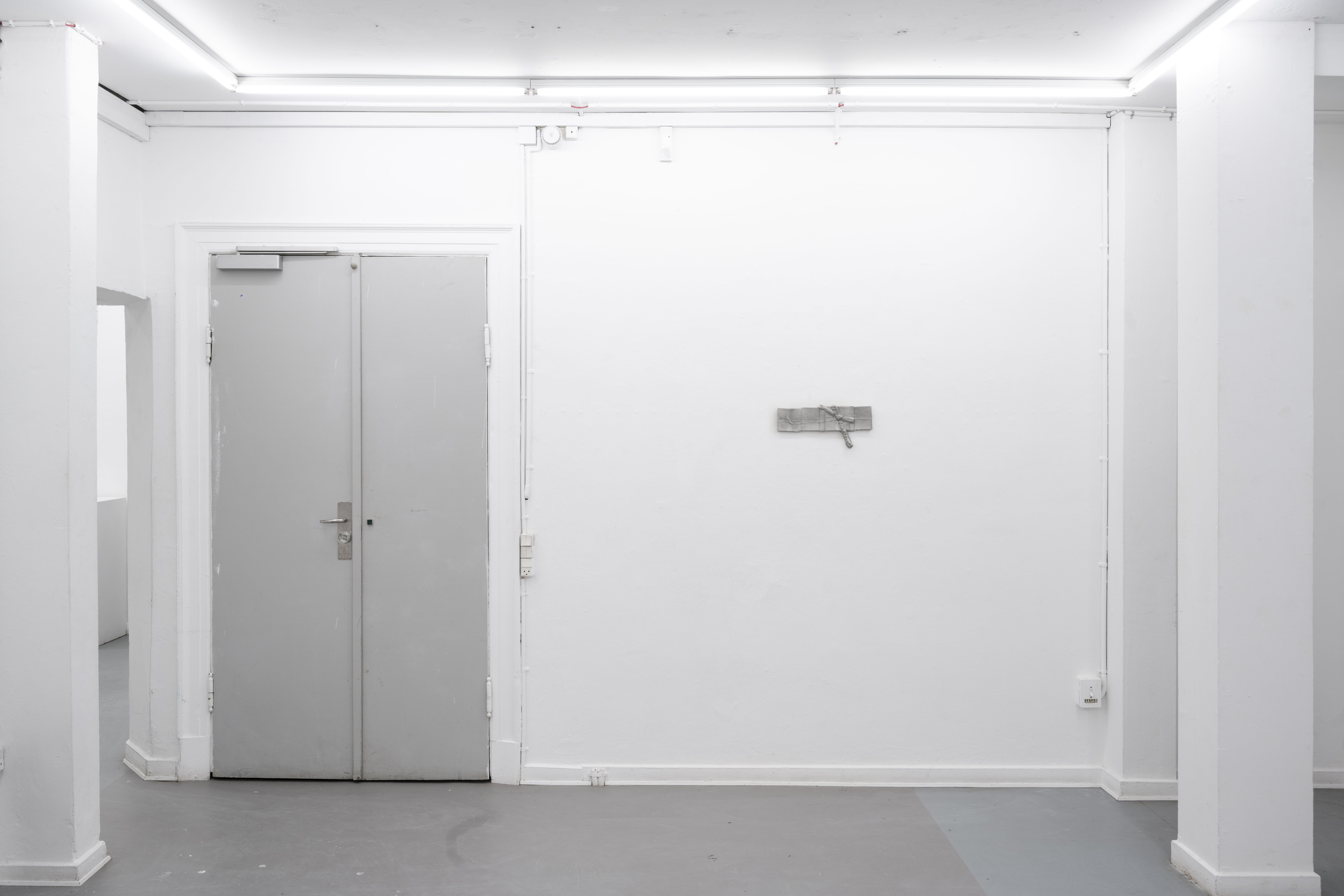

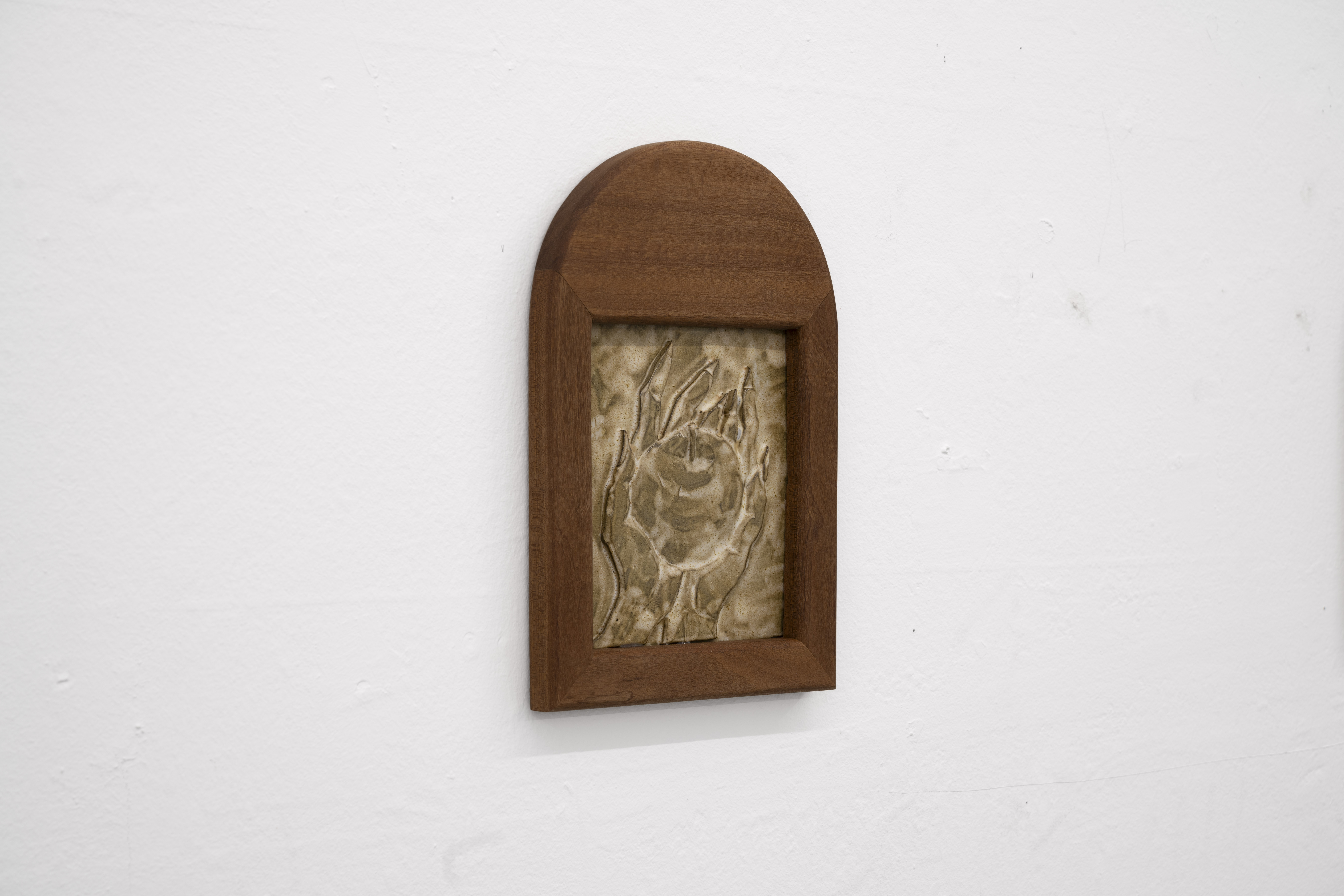

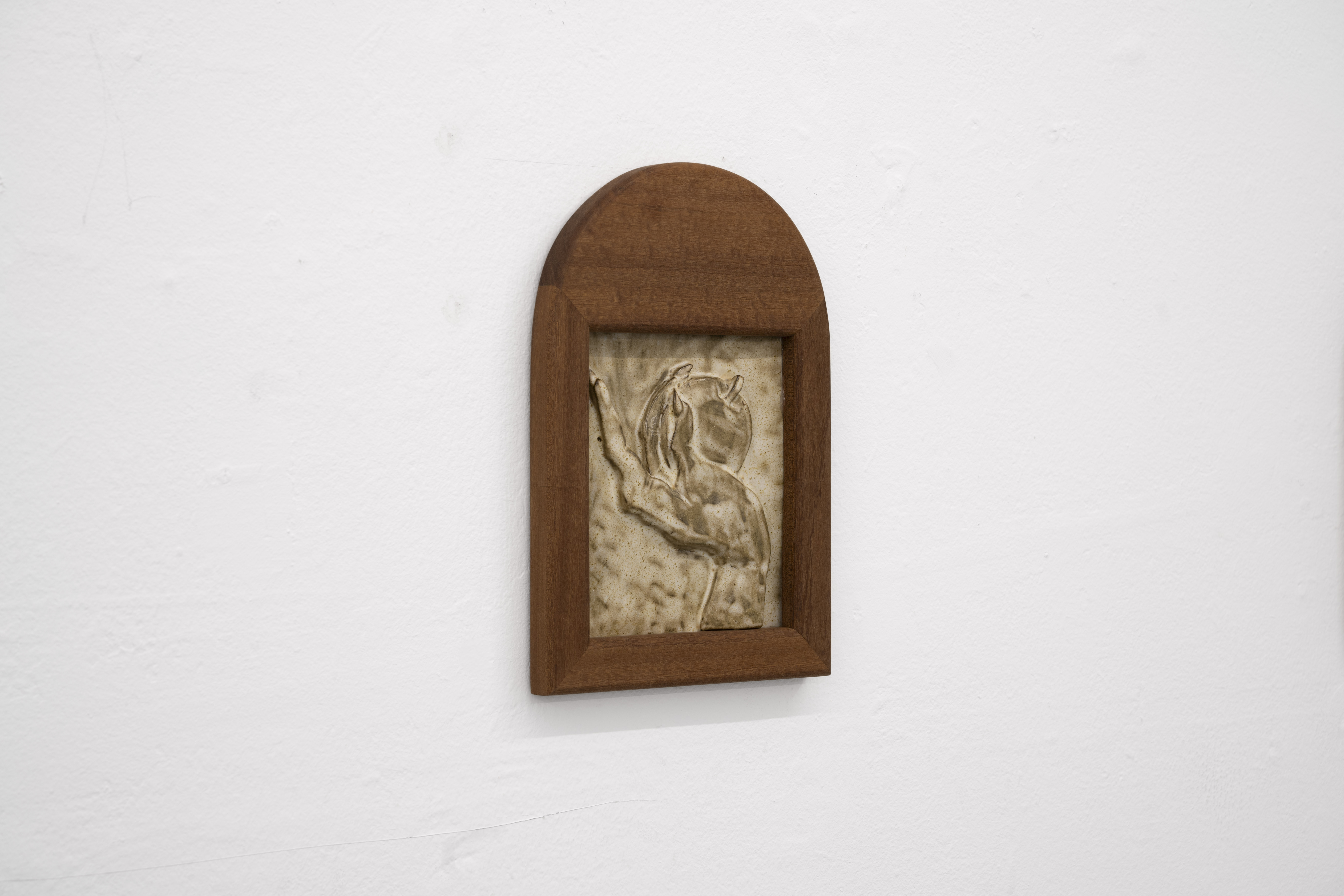
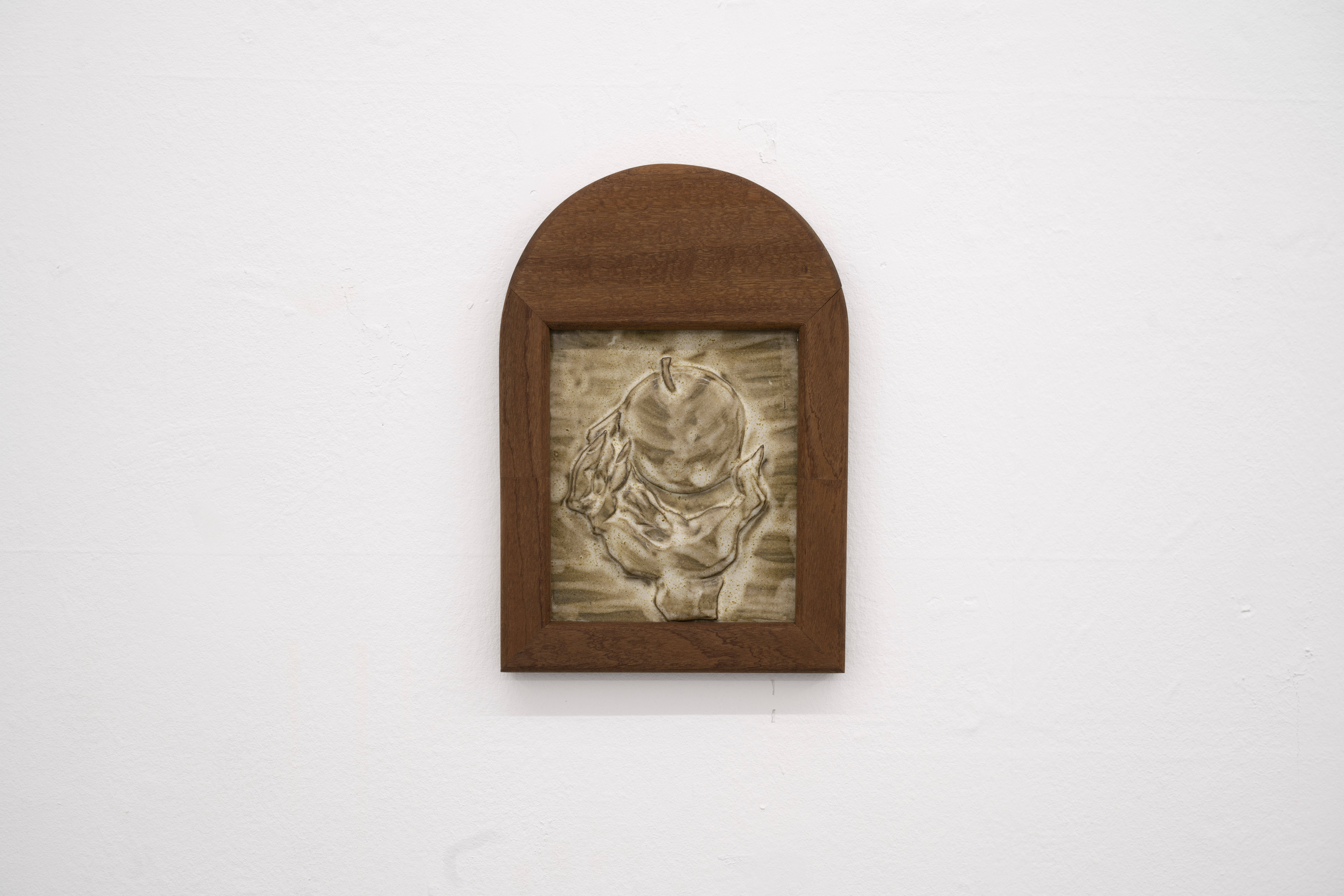

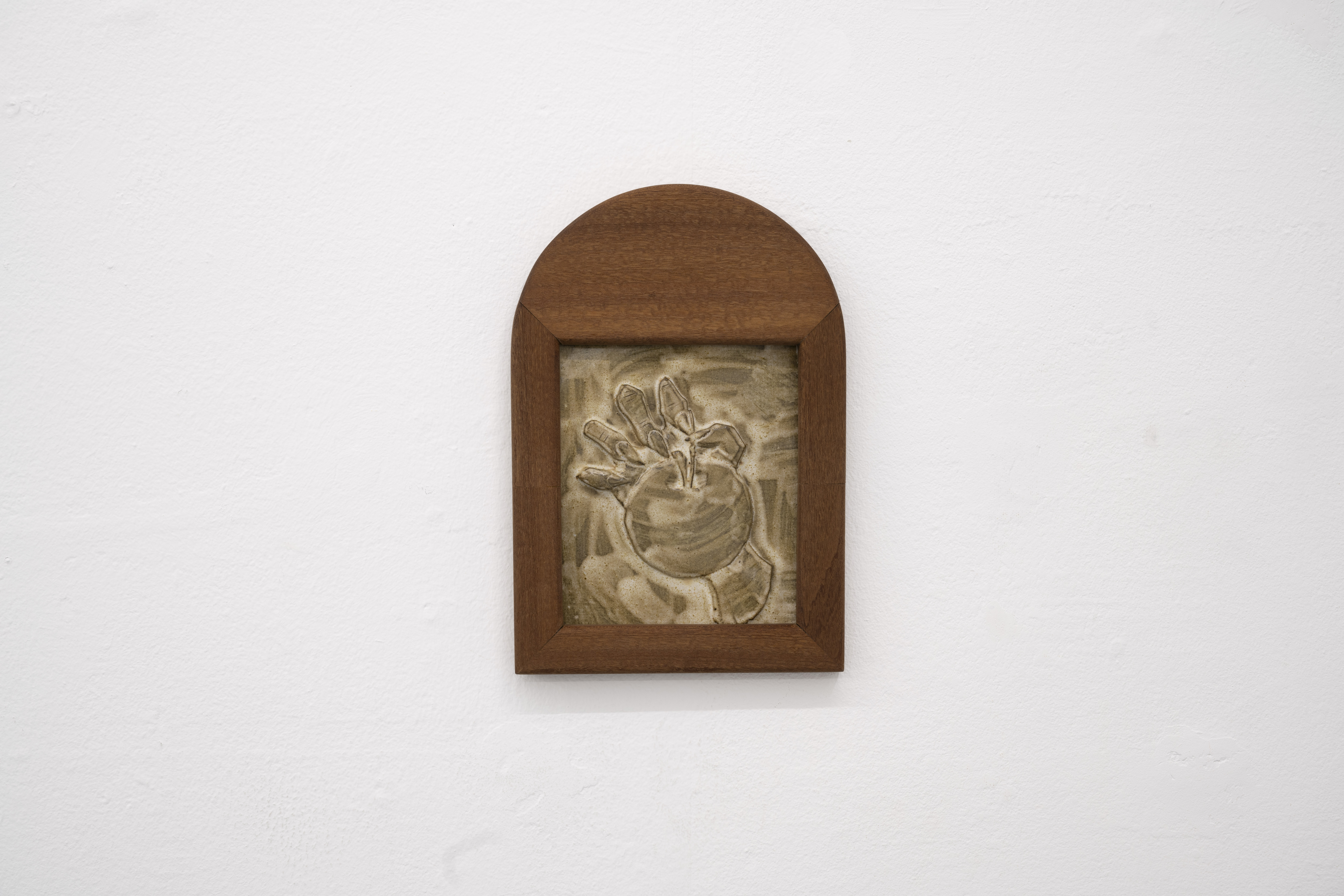



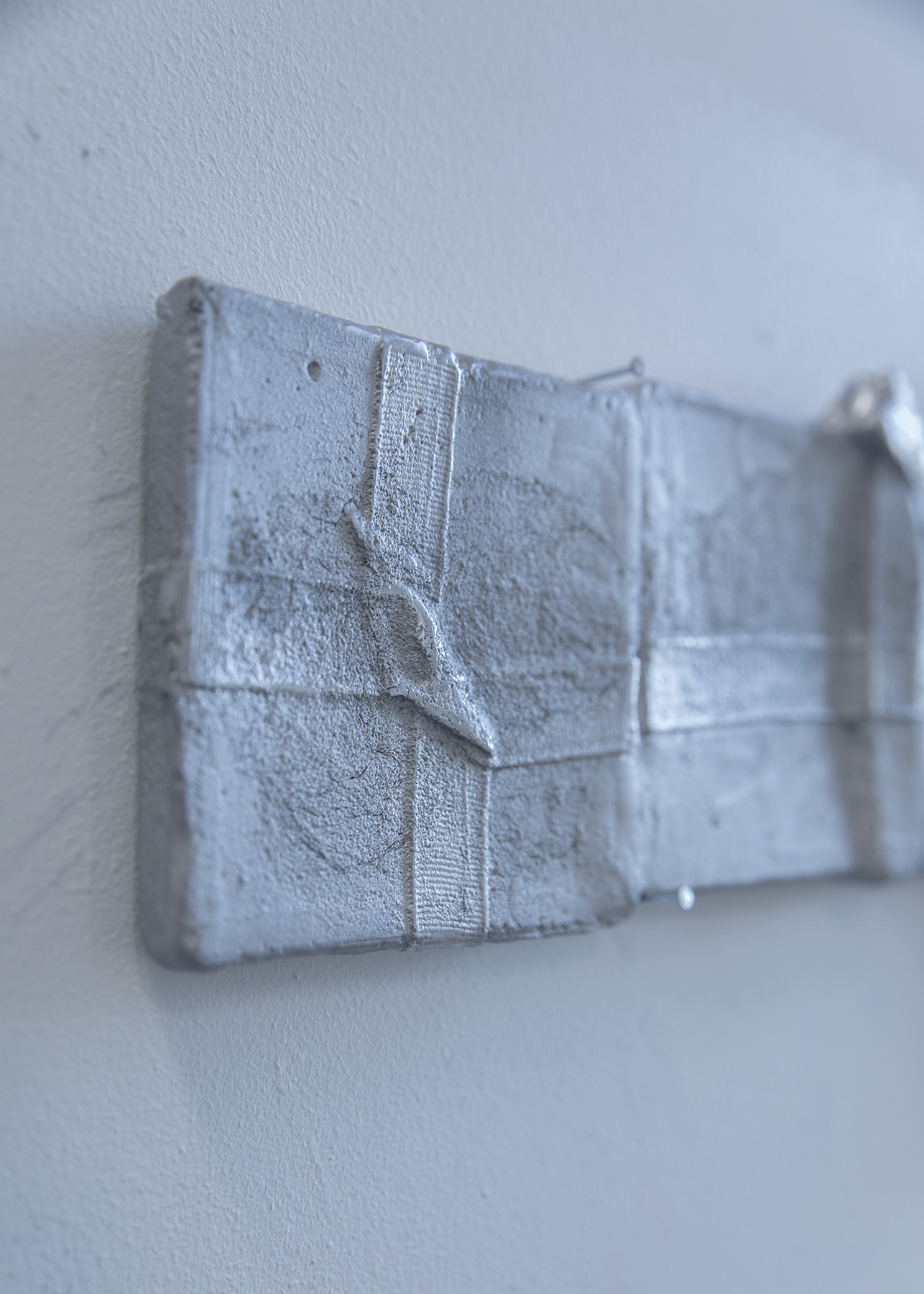
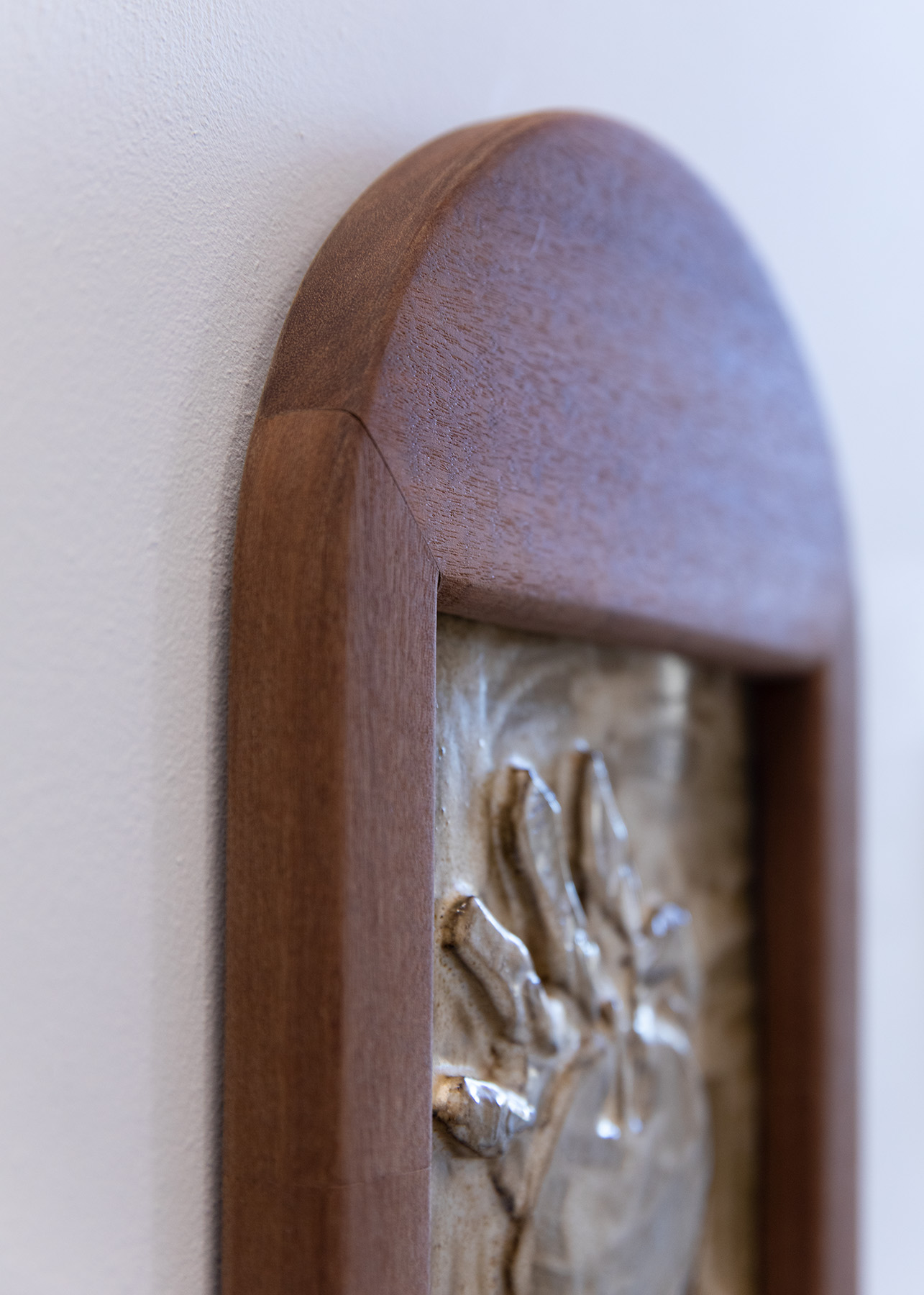
Photography: Luis Sulzmann, Ming Yuan
Cunning I-IV, 2024
Mahogany, glazed ceramic, epoxy binder
21x30.5x2.5 cm
Veil, 2024
Aluminium
appx. 41x19x1.5 cm
Mahogany, glazed ceramic, epoxy binder
21x30.5x2.5 cm
Veil, 2024
Aluminium
appx. 41x19x1.5 cm
Ming Yuan
CUNNING I-IV, Veil
2024
Text by Ming Yuan
In this recent series of ceramic sculptures, I’ve explored the theme of gifting within intimate relationships by focusing on my own experiences—portraying female hands, modeled after mine—holding apples that carry significant symbolic weights: pleasure, value, danger and desires. Similar to the glossy smooth polishing of a mini-cooper SE, once gifted to me, signify not only care and love but also the subtle expectation of reciprocation and manipulation of desires, whether emotional or material. A gift that seduces, pampers, and corrupts the receiver, creating a reliance on the luxurious comfort, turning the giver to a subjugator. The sculptures serve as meditations on the moral complexities of giving and receiving, raising questions about the unspoken obligations that underlie romantic exchanges.
This tension recalls Marcel Mauss’s seminal essay The Gift, in which he examines the anthropological roots of exchange. Mauss highlights how objects of exchange in primitive societies are imbued with both personal and cultural significance, composing of talismans or other symbols of wealth. This interplay between object and soul resonates with my own experience of gifting, where the act itself mingles lives together, blurring the boundaries between the personal and the material. To present them constitutes a request; to accept them is to commit oneself.
Mauss suggests that to present a gift is not merely to give but to entangle oneself in a social contract. The power of a gift lies not in its physicality but in the soul it carries—a fragment of the giver’s essence. As Mauss describes in Maori culture, gifting is an act that fuses souls, cementing relationships through the exchange of objects that are, in a sense, extensions of the self. This sentiment echoes in my sculptures: the hands hold more than objects—they clutch at the invisible threads of connection, of expectation, of unspoken commitment.
The apple and the car, become, in this light, ‘clinching gifts’—to borrow Bronisław Malinowski’s term—that seal the transaction of intimacy. But there’s a darker side to this, too. In offering a gift, there’s always the risk of the transaction becoming transactional, a situation where the pressure to reciprocate overrides genuine connection. My work invites the viewer to question the fine line between giving as an expression of love and giving as an assertion of power, where the exchange becomes a subtle form of control, rivalry and destruction.
Through these sculptures, I probe the ethics of gifting in contemporary life, tracing a lineage back to the ritualized exchanges of pre-modern societies. In both contexts, gifts are more than objects—they are carriers of meaning, bonds that entwine individuals in a web of obligations, desires, and unspoken demands.
CUNNING I-IV, Veil
2024
Text by Ming Yuan
In this recent series of ceramic sculptures, I’ve explored the theme of gifting within intimate relationships by focusing on my own experiences—portraying female hands, modeled after mine—holding apples that carry significant symbolic weights: pleasure, value, danger and desires. Similar to the glossy smooth polishing of a mini-cooper SE, once gifted to me, signify not only care and love but also the subtle expectation of reciprocation and manipulation of desires, whether emotional or material. A gift that seduces, pampers, and corrupts the receiver, creating a reliance on the luxurious comfort, turning the giver to a subjugator. The sculptures serve as meditations on the moral complexities of giving and receiving, raising questions about the unspoken obligations that underlie romantic exchanges.
This tension recalls Marcel Mauss’s seminal essay The Gift, in which he examines the anthropological roots of exchange. Mauss highlights how objects of exchange in primitive societies are imbued with both personal and cultural significance, composing of talismans or other symbols of wealth. This interplay between object and soul resonates with my own experience of gifting, where the act itself mingles lives together, blurring the boundaries between the personal and the material. To present them constitutes a request; to accept them is to commit oneself.
Mauss suggests that to present a gift is not merely to give but to entangle oneself in a social contract. The power of a gift lies not in its physicality but in the soul it carries—a fragment of the giver’s essence. As Mauss describes in Maori culture, gifting is an act that fuses souls, cementing relationships through the exchange of objects that are, in a sense, extensions of the self. This sentiment echoes in my sculptures: the hands hold more than objects—they clutch at the invisible threads of connection, of expectation, of unspoken commitment.
The apple and the car, become, in this light, ‘clinching gifts’—to borrow Bronisław Malinowski’s term—that seal the transaction of intimacy. But there’s a darker side to this, too. In offering a gift, there’s always the risk of the transaction becoming transactional, a situation where the pressure to reciprocate overrides genuine connection. My work invites the viewer to question the fine line between giving as an expression of love and giving as an assertion of power, where the exchange becomes a subtle form of control, rivalry and destruction.
Through these sculptures, I probe the ethics of gifting in contemporary life, tracing a lineage back to the ritualized exchanges of pre-modern societies. In both contexts, gifts are more than objects—they are carriers of meaning, bonds that entwine individuals in a web of obligations, desires, and unspoken demands.